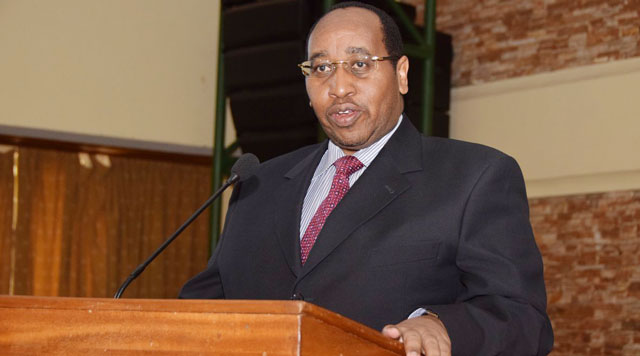
Kampala, Uganda | JULIUS BUSINGE | Bank of Uganda is pessimistic about growth in private sector credit for the last quarter of this financial year.
This is the latest bad news suggesting the country is yet to achieve desired economic growth of over 7%.
“We are not likely to achieve the target of 8 percent because economic activity is slow,” Adam Mugume, the executive director for research at BoU told The Independent in an interview, adding when that happens, interest rates also suffer.
The bank had hoped that the 8% PSC target would be printed in the last quarter of this financial year (2017/2018).
BoU’s detailed monetary policy report for June says average annual growth in PSC averaged 6.5% in the quarter to April 2017 lower than 9.5% recorded in the quarter to April 2016.
The report says growth in credit was largely driven by agriculture, trade, and personal loans recorded at 54%. On the other hand, negative credit growth was noted in manufacturing, building and some components in services sub-sector.
The slow growth in PSC partly affected economic growth for this financial year, projected to be 3.9% down from the target 5.5% and 4.7% recorded for the FY2015/2016.
In a bid to boost credit growth in the medium term and support economic activities, Central Bank Governor Emmanuel Tumusiime Mutebile on June 19 announced a one percentage point reduction of its policy indicative lending rate (the CBR) to 10% in June.
In a statement, the bank said the decision was taken because “with domestic inflationary pressure remaining subdued and given the continued weak growth prospects, the BoU judges that the continued easing of monetary policy is appropriate. This will be consistent with achieving the core inflation target of 5 percent in the medium-term and will also support the recovery of real output in the economy”.
Commercial banks have in the past over five years tightened credit standards to prevent further growth of industry non-performing loans that were recorded at Shs 1.2 trillion, the highest in recent times, at the end of 2016.
Analysts say government must cut expenditure on some administrative ‘political’ units and use that saving to offer long term credit to the private sector through Uganda Development Bank so as to accelerate credit growth and revamp the economy. They also urge government to reduce internal borrowing (projected at Shs 954 bn for FY2017/18 up from Shs 612 bn this financial year) so as to reduce its competition with the private sector borrowers for the little funds available for lending in the market.
RELATED STORY
CORRECTION: Bank of Uganda reduces CBR to 10% for next three months https://t.co/rvhxeGfj2j pic.twitter.com/wTGHwLzlsQ
— The Independent (@UGIndependent) June 19, 2017
 The Independent Uganda: You get the Truth we Pay the Price
The Independent Uganda: You get the Truth we Pay the Price





